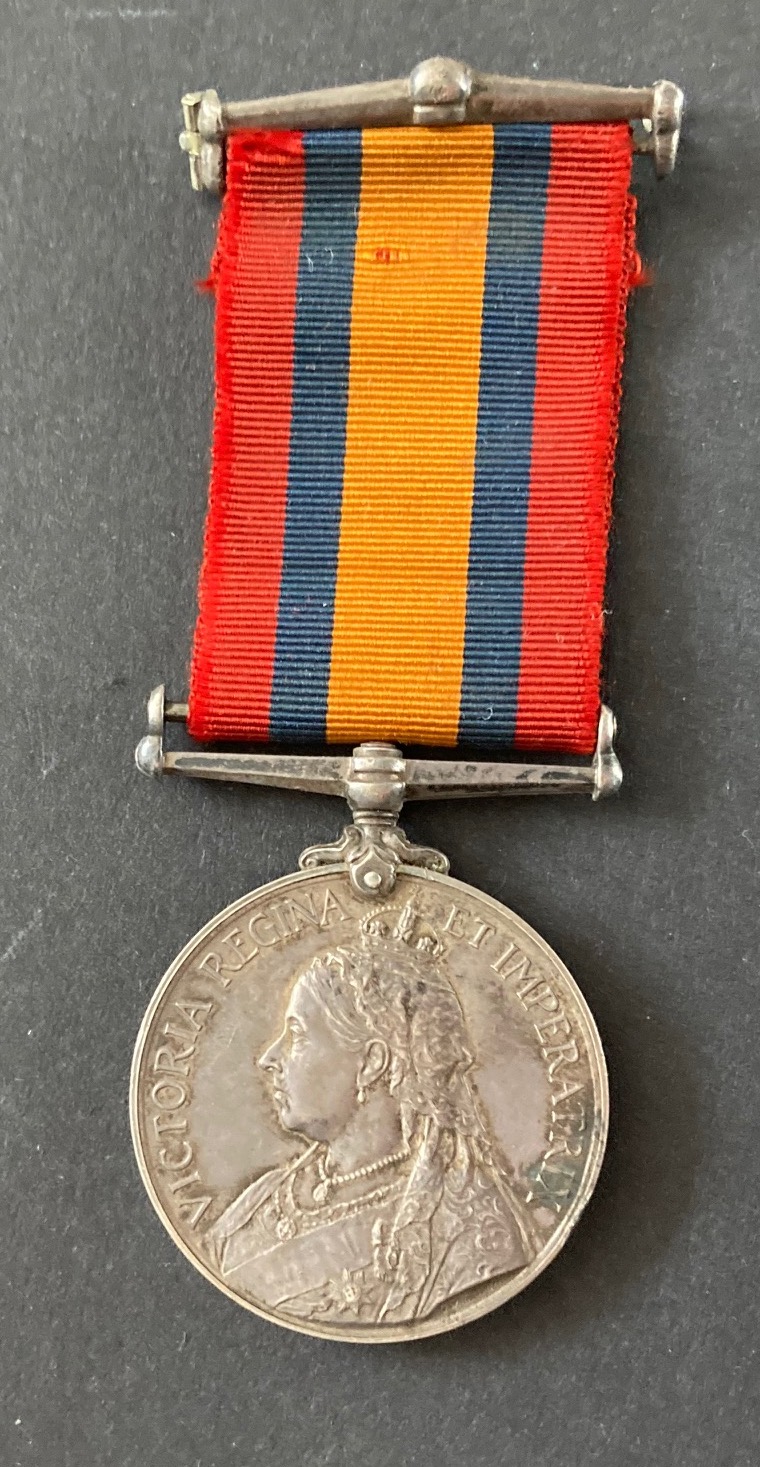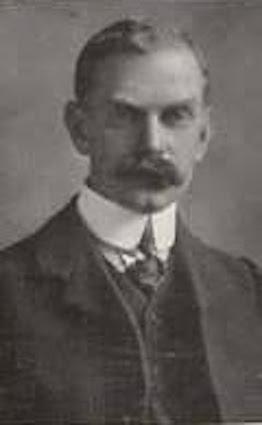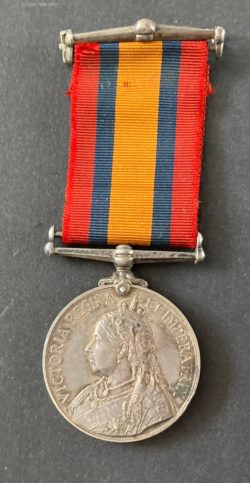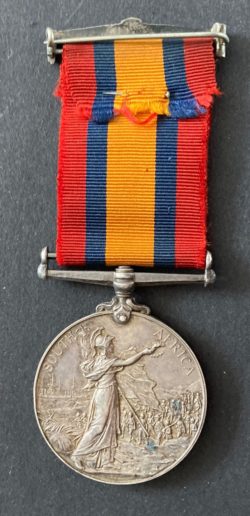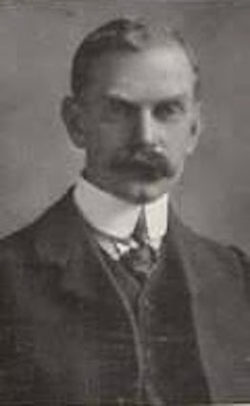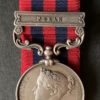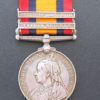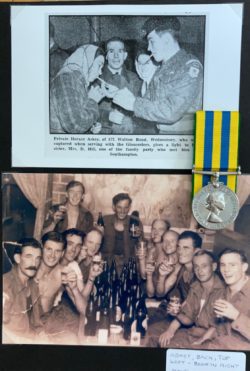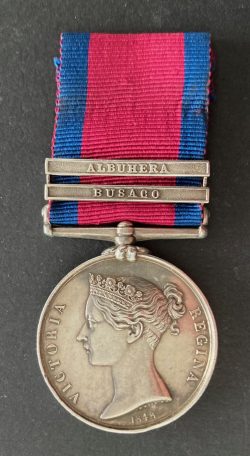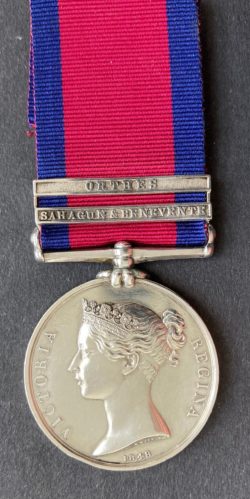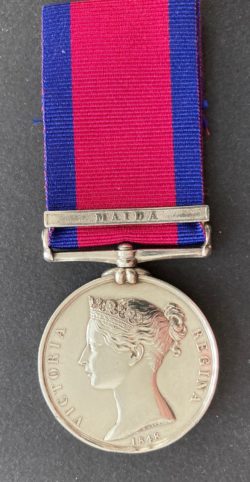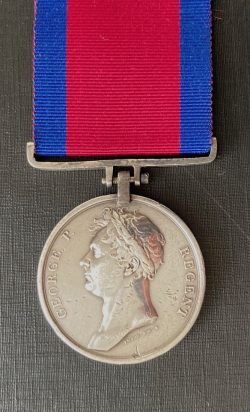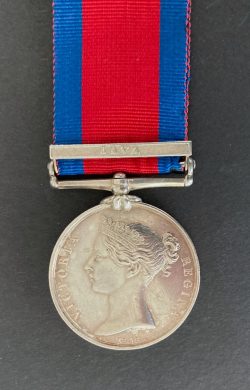Q.S.A. A correspondent’s medal ‘Daily Mail’ S.J. Pryor 1865-1924 Editor and managing editor at different times of the Daily Mail where Northcliffe appointed him the first editor in 1896, Daily Express, St. Jame’s Gazette, Evening Gazette, Evening Standard and Tribune, day editor of the Times from 1909 where he acted as Lord Northcliffe’s ‘watchdog’ Accompanied the Bulgarian Army as Times correspondent during the Balkan War 1912-1913 , director of the Times Publishing Company 1909-1918 and the first Press Secretary to the Sovereign & Royal Family, Buckingham Palace 1918-1920
£2,450.00
1 in stock
Q.S.A. no clasp
S.J. Pryor ‘Daily Mail’
Samual John Pryor born Ashbourne, Derbyshire in 1865. He appears in the 1881 Census as a lodger aged 16 of 16 New Railway Terrace, Wakefield and occupation Telegraph Clerk, place of birth Clifton, Derbyshire. Pryor began his career with editorial appointments in the U.S.A. 1889-1896. He is shown as arriving in New York passenger lists in 1885 aboard the Bothnia aged 20, and a telegraphist and again in 1889 aboard Serial’s occupation, stenographer. In 1894 he again arrives in New York aboard Etruria aged 29 and by now a U.S citizen. He was latterly employed in the USA as a wire service operator marrying in New York in 1894. In 1896 he Harmsworth brothers (Alfred, later Lord Northcliffe) decided to start a newspaper based on the style of newspapers published in the USA. By the time the first issue of the Daily Mail appeared for the first time on 4th May, 1896, over 65 dummy runs had taken place, at a cost of £40,000. When published for the first time, the eight page newspaper cost only halfpenny. Slogans used to sell the newspaper included “A Penny Newspaper for One Halfpenny”, “The Busy Man’s Daily Newspaper” and “All the News in the Smallest Space”.
For the first three years Alfred Harmsworth (Alfred later Lord Northcliffe) appointed S. J. Pryor, as editor and managing director. On the outbreak of the Boer War in 1899 he sent Pryor to organise the war coverage and Thomas Marlowe as a stand in. The Daily Mail totalled some 25 correspondents throughout the war with a reputation as being at the sharp end. As a result the had one correspondent killed, three wounded, , four captured, and one died, a casualty rate beyond most combat units. When Pryor returned, expecting to find himself still in the editorial chair, Marlowe had been made `managing editor’, and thought this gave him seniority. A silent daily battle for physical possession of the editor’s room ensued, watched with fascination by the office. Alfred must have found it almost as good as the goldfish and the pike. Each man tried to arrive before the other in the morning, then remain sitting at the desk all day. Marlowe proved the stronger; one version of his victory has it that he brought better sandwiches; another, that he had a stronger bladder.
By 1899 from a standing start the Mail had reached a circulation of 545,000 and rising.
Pryor was approached by C. Arthur Pearson who had begun publication of the Daily Express in April 1900 taking on the editorship himself. By November. Finding himself spread somewhat thin he Brough in Pryor as editor but retained a role as ‘editor in chief’, an interfering role which clearly did little to impress Pryor who left the following year.
In 1907 he was brought in to the editorship of the Tribune. The Tribune was the official British Liberal Party newspaper founded by Franklin Thomasson MP in 1906 as a bold but disastrous experiment in newspaper production. It was a penny newspaper of a solid but serious nature. Thomasson gathered about him for the purpose one of the most distinguished staffs in the history of journalism, and the amount of money involved was enormous. By 1907 the paper was in trouble. The editor, Hill, was ousted along with the three leader writers, the radicals Brailsford, Hobhouse and Hammond. The venture failed and the Tribune ceased its short career in 1908. The failure was because of commercial reasons and not because of deficiency in the quality of it’s output. “Too few chose to read it, or advertise in it.” And “ Too good for it’s readership” were comments of the time. Estimates of Thomasson’s losses ranged from an enormous £300,000 to an even more staggering £600,000 in the 25 months of it’s ill-fated life.
In 1909 Northcliffe brought Pryor to the Times. As day editor of the Times from 1909 where he acted as Lord Northcliffe’s ‘watchdog’ He ccompanied the Bulgarian Army as Times correspondent during the Balkan Wars 1912-191.
He was director of the Times Publishing Company 1909-1918 and first Press Secretary to the Sovereign & Royal Family, Buckingham Palace 1918-1920
He died in London, 25 March, 1924.
An exceptional correspondent’s medal. I have carried out a basic couple of hours research job from scratch but there is more to go with this one.
